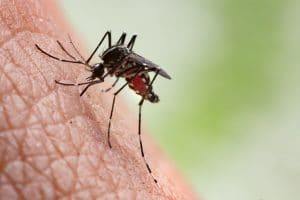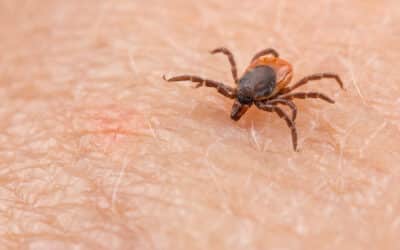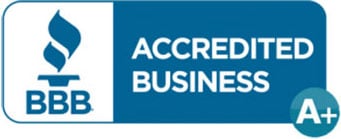
Pest Identification: Mosquitoes
Mosquito Protection
Our mosquitos protection program helps kill and repel active mosquitos. Our state licensed and trained technicians will focus on areas of harborage and breeding sites to reduce the population of mosquitos on your property. The usual hotspots are trees, shrubs, leaf litter, under decks, planting beds, and any standing water or wetland areas. We offer both traditional and organic options for spray; however the traditional will yield a much better result!
FHS is proud to provide the best coverage and protection by utilizing our high pressure spray equipment. With rising concerns for diseases carried by mosquitos such as EEE, West Nile Virus, and Zika, we are confident that you are in good hands!
Option 1: “Bite `Em Back” Program (Chemical applications)
Our state licensed and trained applicators will apply an insecticide spray to all areas of harborage on your property. Once the spray has dried, you are free to go out and enjoy your property again! Drying takes 20 – 30 minutes. This service does provide a rapid knockdown/kill and residual protection. A minimum of 7 treatments is recommended to achieve good control over the population. These applications take place between May and September.
Option 2: The Green Alternative Program (Organic applications)
We are proud to be in compliance with the USDA National Organic program. This service is safe for kids and pets and requires no dry time after application to go back out onto your property. We use all natural botanical rosemary and peppermint oils. This service also provides a quick knockdown/kill, but a shorter residual protection. This program will offer a quick kill/knockdown but a shorter residual than the chemical applications. Unless surrounded by water, marshes, or edible plants, we recommend the regular chemical applications to achieve the best results.
Mosquito and Tick Combo Program (Chemical and Organic)
Our state licensed and trained applicators will apply an insecticide spray to all areas of harborage on your property. Once the spray has dried, you are free to go out and enjoy your property again! Drying takes 20 – 30 minutes (unless on organic program). This service does provide a rapid knockdown/kill and residual protection. A minimum of 7 treatments is recommended to achieve good control over the population. These applications take place between May and September.
Prevention is the best medicine!
Mosquitos are extremely annoying and at times, very dangerous! Here at Ford’s, we continue to protect your family and pets against rising cases of Zika, West Nile Virus, and Eastern Equine Encephalitis (EEEV) and many more. We are confident that you’re in good hands with our Mosquito Protection services. Our application equipment is the best in the industry. We are able to provide very high pressure and powerful sprays, unlike our competitors, to keep those Mosquitos at bay!
Zika Virus
Zika Virus is a member of the Flaviviridae virus family. It is spread by Aedes mosquitos that are active during the daytime. Since the 1950s, the virus has been known to occur in a small area between Africa and Asia. In 2007 however, the virus spread eastward to the Americas. Zika Virus often causes no or very mild symptoms. These symptoms tend to be a similar to a very mild form of Dengue Fever. There is no current treatment for this dangerous virus, but doctors use Paracetamol and rest to help with the effects of the symptoms. Zika Virus can be spread by mosquitos, sexual contact with another infected person, unscreened blood transfusions, and pregnant mothers can transfer the virus to her developing child. Symptoms of Zika Virus can include:
■ Fever
■ Red eyes
■ Joint pain
■ Headaches
■ Maculopapular rashes
Generally, symptoms last less than 7 days and as of 2016, there have been no reported deaths during the initial infection. Infection during pregnancy causes microcephaly and other brain malformations in some babies. Infection in adults has been linked to Guilliain-Barré Syndrome (GBS). Diagnosis is by testing the blood, urine, or saliva for the presence of Zika virus RNA when the person is sick.
West Nile Virus
West Nile Virus is an arbovirus in the Flaviviridae family. There are various kinds of mosquitos that have the ability to transmit this Virus, with birds being the most commonly infected animal. West Nile Virus has also been found in various different Tick species. West Nile Virus has also been found in reptiles and some amphibians. There is currently no vaccine or medication for West Nile Virus. The best way to reduce the chance of getting this nasty virus is by reducing the populations and breeding sites in your area. There are various different problems that can arise after being infected with West Nile Virus.
They include:
■ West Nile Fever – Occurs in 20% of cases. It is a Febrile syndrome that causes Flu-like symptoms. This fever tends to be a mild, acute syndrome lasting 3 to 6 days after the symptoms begin to show.
■ West Nile Neuroinvasive Disease – This occurs in less than 1% of cases. WNND is when the virus infects the central nervous system, which leads to meningitis, encephalitis, meningoencephalitis or a poliomyelitis-like syndrome. Many infected patients with WNND have normal neuroimaging studies; however abnormalities may show in different cerebral areas including basal ganglia, thalamus, cerebellum, and the brainstem.
■ West Nile Virus Encephalitis – This is the most common neuroinvasive manifestation of WNND. WNE has similar symptoms to other cases of encephalitis. These symptoms can include fever, headaches, and an altered mental state. Muscular weakness is also very common, with 30% to 50% of patients experiencing lower motor neuron symptoms, flaccid paralysis, and hyporeflexia.
■ West Nile Meningitis – Symptoms of WNM usually include fever, headache, and a stiff neck. An increase of white blood cells, known as pleocytosis, can also be present.
■ West Nile Meningoencephalitis – is inflammation of both the brain (encephalitis) and meninges
(meningitis).
■ West Nile Poliomeylitis – is an acute flaccid paralysis syndrome that is less common than WNM and WNE. This syndrome is usually characterized by acute onset of limb weakness or paralysis. Pain in the limbs has been known to occur after paralysis. The syndrome can also affect the respiratory muscles, which can lead to acute respiratory failure.
■ Nonnerologic complications – These are very rare, but WNV infections can lead to pancreatitis, myocarditis, rhabdomyolysis, orchitis, nephritis, optic neuritis, and cardiac dysrhythmias and hemorrhagic fever.
Eastern Equine Encephalitis (EEEV)
EEEV is able to infect various types of animals, including mammals, birds, reptiles, and amphibians. The Cs. Melanura and Cs. Morsitan are the kinds of mosquitos that tend to be the carriers. These mosquitos feed on the blood of birds, and when other mosquitos feed on an infected bird, they contract EEEV. From there, the newly infected mosquitos will go on to feed one other animals and humans, passing the virus along. The virus was first discovered in Massachusetts in 1831. There is no cure or vaccinations for EEEV. The best way to avoid getting infected is to reduce breeding areas and avoid exposure to mosquitos. Treatment for EEEV consists of corticosteroids, anticonvulsants, and supportive measures to treat the symptoms. The symptoms of EEEV depend on the way that the virus progresses, either systematic or encephalitic.
These are the differences:
■ Encephalitic involves the swelling of the brain and can be the only symptom appearing. This progression is mostly found in infants and young children, but usually occurs after experiencing systemic symptoms.
■ Systematic illnesses usually are recoverable after one or two weeks. The symptoms include high fever, muscle pain, altered mental state, headaches, meningeal irritation, photophobia, and seizures. These symptoms occur 3 to 10 days after being infected by a mosquito’s bite.


"Very efficient, used safety practices, kept me informed, exceptional professional."
-E. Kruczek

"We are very happy & satisfied with our technician."
-D. Auger

"We are very happy with your service. We will be ongoing customers."
-B & J. Douty
The best service starts here.
We’re the most trusted pest control and lawn care company in Central Massachusetts. But don’t take our word for it. Read real reviews from happy customers. Then call us and join our growing list of residents, families, and businesses who depend on Ford’s Hometown Services to protect what matters most.
Buzzwords
Understanding Tick Behavior: Strategies for Long-Term Pest Control
Do you hate ticks? You’re not alone. A recent study by the National Pest Management Association found that 1 in 3 Americans are concerned about being bitten by bloodsucking pests like mosquitoes, ticks, and bed bugs. And for good reason — tick-borne diseases are on...
The Silent Destroyers: A Comprehensive Guide to Termite Pest Control
Everyone has heard the saying that termites have been around since the time of the dinosaurs. It’s true. Termites date back more than 120 million years! To say they are hard to kill is an understatement. That’s why taking termite pest control seriously is critical for...
Safeguarding Your Sanctuary: The Ultimate Guide to Wildlife Control
In New England, populated urban areas and diverse natural habitats go hand-in-hand. That means encounters with wildlife are a regular occurrence for many residents. Whether you live in a suburban neighborhood or a more rural area, safeguarding your home and property...










